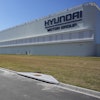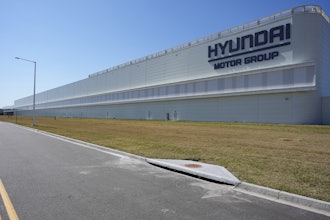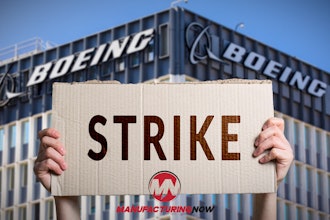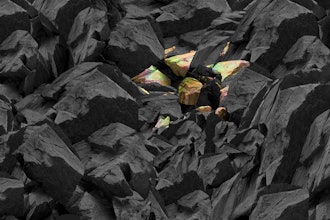Leading manufacturers offer tanks that can meet specific storage and handling needs. Some companies can even install your own unique components at the factory. Here is advice to consider before signing on the dotted line
By Dave Davis
Just the Facts About Tank Selection Choosing a tank manufacturer is as important as choosing a tank. Here are questions to ask when considering various vendors.• How long has the company been in business? • What volume does it sell? • What experience does the company have in your country and market? • Does the tank manufacturer use the highest quality materials available or "commercial" grade? • Is the company familiar with your industry's standards and unique product requirements? • Does the tank manufacturer have third-party accreditation such as ISO 9001 quality certification. |
Tank buyers often make purchase decisions based on cost. Companies in the market to buy a tank or silo are thinking about longevity — getting the most economical tank that will last the longest. While cost is important, other factors also influence satisfaction. These include construction materials, proper design, coatings, characteristics of the material to be stored, and total life-cycle cost. Following are the top considerations to address when selecting a tank.
Construction Materials
The material you choose for tank construction will likely depend on the volume of material to be stored. Concrete and field-welded tanks are well suited for storing an exceptionally large volume of material. However, for most storage jobs, bolted and factory welded tanks are an appropriate choice because they require less manpower to install, they are quicker and easier to erect, and they offer more features and options. Common construction materials for field-welded, factory-welded, and bolted tanks are carbon steel, stainless steel, and aluminum.Product Parameters

Columbian TecTanks are used for a variety of dry bulk and liquid storage applications in nearly all industries.
One of the most important elements to consider when choosing a tank is the characteristics of the material to be stored. Are you familiar with your product's flow requirement? Flow requirements are best determined by a flow test, which should be done prior to considering a tank. Flow testing will determine the proper degree for the hopper and hopper outlet, and it will provide requirements for flow or blending equipment.
Also consider your product's abrasiveness as well as the bulk density of the product. Each material has its own unique characteristics, whether dry or liquid chemicals, plastics, minerals, wood products, food products, potable water, or wastewater. Understanding the material's unique characteristics will help determine the features you need (and don't need) to construct the most effective tank for the job.
Design Criteria
The available space in which you have to build the tank is another key consideration. Tanks come in all shapes and sizes — tall and slender to short and wide. Design criteria such as natural boundaries, wind loads, deck loads, and seismic conditions will affect the design you choose. Tanks built in areas with high wind and seismic conditions, for example, are better built with a shorter height and wider diameter. On the other hand, tanks that must fit into tight spaces will likely be tall and slender.Be sure to consider whether the tank may need to be expanded or moved in the future. Concrete and field-welded tanks are costly and time-consuming to expand. Bolted tanks are expandable; however, the foundation and lower half of the tank must be originally built to accommodate the additional weight of an expansion. Keep in mind that vertical expansion of an existing bolted tank is often more cost-effective than constructing a new tank. If available space is a limitation, consider constructing a small, expandable foundation with a tank design that is capable of expansion.
Custom Designs

Tanks can be customized with the latest features to meet specific needs, such as size and location, as well as industry standards.
Features and Options
Various custom features and options are available for today's tanks. Custom features include guard rails, access platforms, spiral stairways, elevated drive-through designs (accessible by both railcars and trucks), custom components, support structures, stacks, deck filter flanges, level indicator openings and nozzles, manways, pressure relief devices, and other safety features. The frequency of filling and emptying the tank will determine the need for a cone-hopper bottom versus a flat bottom tank.Advanced Coatings

Tanks can be used as storage solutions — in this case, for capacities in excess of 3 million gallons — or as clarifiers, equalization tanks, and anaerobic and aerobic digesters.
Bolted and factory-welded tanks may receive their coatings at the factory. Field-welded tanks receive coatings after being fully erected in the field. Extensive surface preparation, such as abrasive blast cleaning, must be done to ensure maximum coating adhesion and performance. Likewise, if concrete is being field-coated, blast cleaning of surfaces to provide profile is required for immersion service applications. Keep in mind that field-coated tanks are subject to the environment during the drying process, and the quality of the coating process can be affected by rain, humidity, dust, and temperature as well as the quality of the on-site team erecting and coating the tank. Weather can also play a role in the time table for installation and hookup of field-welded and concrete tanks.
Total Life-Cycle Cost
Finally, when it comes to cost, be sure to analyze the total life-cycle cost of each tank you consider. Reviewing only initial construction costs will not take into consideration future maintenance and expansion. Request that all tank manufacturers provide an analysis of life expectancy and cost. An example of a total life-cycle analysis for epoxy-coated and glass-fused-to-steel-coated tanks can be found at www.tanks.com. While your decision may rely on cost in the end, make sure you compare apples to apples with each cost estimate.Dave Davis has more than 25 years of experience in bolted tanks for both liquid and dry bulk use. Readers can contact him at Columbian TecTank in Kansas City, KS, at 913-621-3700 or [email protected]. Columbian TecTank is an ISO 9000 certified company that manufactures bolted and shop-welded tanks and uses technologically advanced coatings. More information is available at www.columbiantectank.com.


















